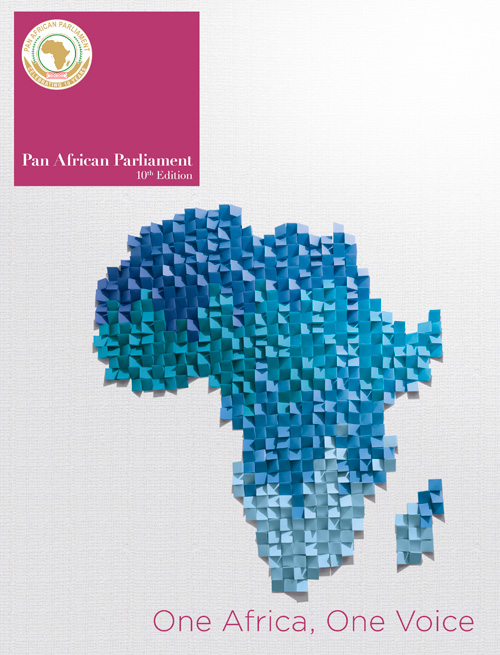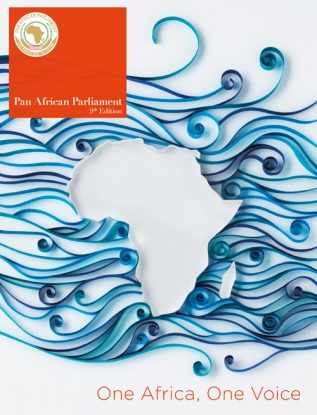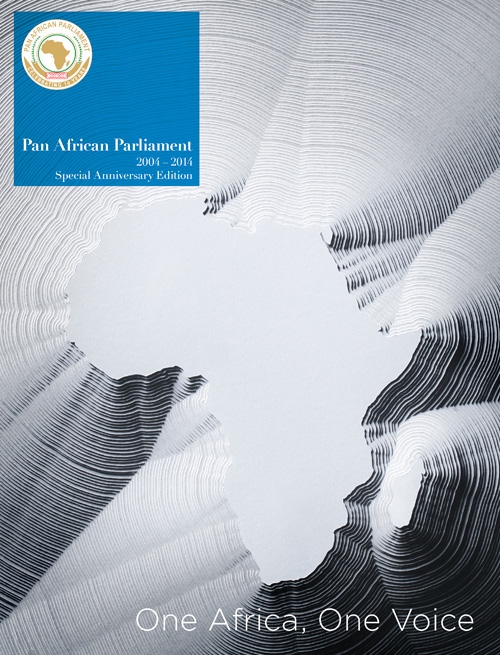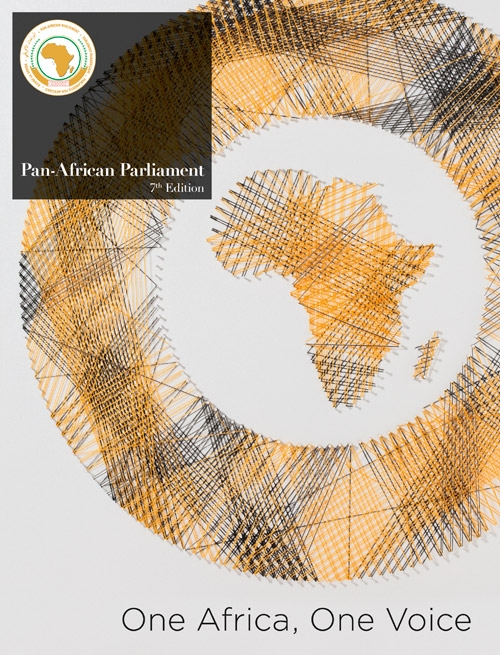
She’s better known as a Nollywood star but there were no red carpets when Nigeria’s Omotola Jalade-Ekeinde jetted into South Africa earlier this year. The reason for her visit was to raise awareness around women’s rights and lead other celebrities in an empowerment campaign titled Poverty is Sexist.
The initiative, which holds that women and girls are seriously affected by extreme poverty, seeks empower-ment as a way of eradicating the problem and was specifically conceived to support the AU’s 2015 theme, Year of Women’s Empowerment towards Africa’s Agenda 2063.
Jalade-Ekeinde performed in a musical showcase at the women-themed AU summit held in Johannesburg in June, and also collaborated with top African female singers, including Omawuni Megbele (Nigeria), Judith Sephuma (South Africa) and Victoria Kimani (Kenya) on a campaign song to be used for promotion across the world.
It’s not just Jalade-Ekeinde who is raising her voice for women’s economic empowerment in Africa – the subject has been a focus for decades, but the light is shining brightly this year as the cause gains momentum, with achievements celebrated and challenges highlighted.
Female economic empowerment merits attention as evidence reveals that women are the financial backbone of society and no real development can take place without their active participation. For example, Africa’s rural women – the main caretakers of its children – reinvest 90% of their incomes in their families, compared to 30% to 40% by men.
In the formal workplace, raising female employment levels to that of males could have a direct impact on GDP, states the World Bank’s Gender at Work report. In South Africa, for example, this could increase GDP by as much as 10%. Several studies have also shown that investing in girls has a positive impact on GDP growth rates. A 1999 World Bank study revealed that increasing the secondary education of girls by just 1% results in an annual income increase of 0.3% per capita.
It is for good reason then that women were at the heart of Africa Day celebrations held in Johannesburg in May – another boost to their placement at the centre of the AU’s 2015 Year of Women Empowerment theme. The focus on women at these high levels means that Africa-wide programmes on gender equality and women’s empower-ment will be given the utmost priority during 2015 and the foreseeable future.
Governments across the continent recognise the need to give women equal access to opportunities and have adopted gender policies such as the AU Protocol on Women’s Rights, alongside initiatives such as the African Women’s Decade (2010–2020), to create an environment that enables the empowerment of women.
In her opening speech at the AU summit, AU Com-mission (AUC) Chairperson Dr Nkosazana Dlamini-Zuma emphasised that action must be taken on disparity for women: ‘We must do more to increase the representation of women in Government, in the judiciary and other public and private institutions, and their participation at the tables in peace negotiations.’
Also, in an AU statement on the occasion of Interna-tional Women’s Day in March, Dlamini-Zuma highlighted the five main priority areas that African women have identified as essential to their empowerment in achieving Agenda 2063: women’s health, quality education, peace and security, agriculture and economic empowerment. She also identified Africa’s first female presidents, a higher number of women in African Parliaments and gender parity in the AUC leadership as notable achievements.
At Africa Day, then President of the PAP Hon Bethel Amadi opened proceedings by paying tribute not just to Africa’s people as a whole for the continent’s independence but, more specifically, to women and the role they played in this struggle.
He remarked that since then, huge efforts had been made to reach the objectives of Agenda 2063, particularly regarding women’s empowerment, but that much still remains to be done. ‘As the backbone of African society, women deserved to be valourised,’ said Amadi.
In a so-called solidarity address, the Archbishop of Cape Town, Reverend Dr Thabo Makgoba, referred to the issue of safety as highlighted in Dlamini-Zuma’s five key priorities. Makgoba described the situation of women in Africa as ‘disturbing’, especially regarding the respect of their dignity and human rights, which are constantly being trampled upon. He used the abduction of women and girls by Boko Haram, the terrorist acts in Kenya and various other conflicts as examples.
Increasing the secondary education of girls by just 1% results in an annual income increase of 0.3% per capita
Ambassador Gertrude Mongella, first President of the PAP, also expressed her outrage on this issue – what she termed the ‘business of war’ – and called on Africa’s elite to look for mechanisms to guarantee peace in Africa, without which women’s empowerment would not be possible. She also urged African States to rapidly ratify the PAP’s revised Protocol. This would unlock the legislative powers needed to bring about significant change for women.
Acknowledging the ‘enormous progress’ that has been achieved, Mongella paid tribute to Sudanese activist and Parliamentarian Suad al-Fatih al-Badawi for her contribution to the well-being of women and children through the training of midwives. She initiated this for many African countries with a view to reducing the maternal and infant mortality rate.
During debate time, Parliamentarians tackled a number of issues pertaining to women’s rights such as training and mentoring of young women in politics; awareness and solidarity between women; re-establishment of confidence between the female electorate and female leaders; concrete actions at grassroot levels; evaluation of the impacts of African female leadership to date and the absence of political will, which is hampering women’s access to decision-making posts.
Litha Musyimi-Ogana, Director of the AUC’s Women, Gender and Development Directorate, noted the significance of Africa Day being celebrated exactly 20 years after Beijing and in the middle of the African Women’s Decade programme. Reviewing the progress, she was buoyant about the participation of women in the decision-making process, and made special mention of the election of two women as Heads of State in Liberia and Malawi, an acting female president in the Central African Republic and a woman at the helm of the AUC
The strong impact of the African Women’s Decade has been reflected in the establishment of a fund to support this programme, said Musyimi-Ogana.
During her address, she also emphasised the methodology, which enables the African Trust Fund for Women to finance projects that fall within the ambit of these themes. One project per country and per theme is financed every year by this fund; this means 53 projects per year over a period of 10 years.
Musyimi-Ogana highlighted challenges that must still be met, despite the progress made. These included insufficiency of human resources in the department of gender, women and development; the non-establishment of committees in all the Member Countries; the delay in the transmission of files to where these committees are based; and insufficient funding due to the fact that the African Trust Fund for Women is receiving only 0.5% of its earmarked contributions.
During the debates that followed Musyimi-Ogana’s presentation, speakers hailed the progress made within the framework of the African Women’s Decade, and reiterated these remaining challenges and requirements:
- Financing as the major determinant for the empowerment of women.
- A strategy to mobilise additional resources in order to attain objectives.
- Training opportunities for young girls within the field of gender and women empowerment.
- Danger posed by conflicts and terrorism.
- The need for the PAP to adopt a resolution on the clandestine immigration of youth.
- The 30% quota of women in decision-making posts.
Dinah Musindarwezo, Executive Director of FEMNET, tackled the issue of women’s involvement in decision-making processes as well as rethinking strategies to promote women’s participation.
According to Musindarwezo, obstacles to achieving full decision-making parity included the increasing stagnation of the representation of women within political parties (except in Rwanda, which has exceeded the 50% provided for by the AU); political parties’ systems that do not facilitate the smooth positioning and emergence of women; representation without the significant participation of women within political parties; difficulties in the implementation of quotas due to socio-cultural barriers; and the lack of interest of young women in politics.
FEMNET envisaged putting a pressure group in place for the implementation of Agenda 2063, with regard to the participation of women in political, economic and social decision-making spheres. ‘I will be satisfied with the representation of women in posts of responsibilities the day [there are so many] that we would not be able to count them on our fingertips,’ said Musindarwezo.
The effort is ongoing, with various causes in progress such as the AU’s adoption of a Common Position on Ending Child Marriage Agreement, which signalled its commitment to empowering women and girls, and protecting their human rights. With the evident will and energy that the AU and PAP are applying to this cause, Africa’s women look set to continue their rise to equity.







